What is the difference between kratom powder and kratom extract?
Kratom, scientifically known as Mitragyna Speciosa, has gained significant attention for its potential benefits, including relief, mood enhancement, and increased energy.
Originating from Southeast Asia, Kratom comes in various forms, with Kratom powder and Kratom extracts being the most popular. In this blog post, we will explore the key differences between these two forms, helping you make an informed decision about which is right for you.
What is Kratom Powder?
Kratom powder is made by drying and grinding the leaves of the Kratom tree. This process retains most of the plant’s natural compounds, including alkaloids like mitragynine, which are responsible for Kratom’s effects. Kratom powder is versatile and can be consumed in several ways: mixed with water or juice, brewed into tea, or encapsulated. Kratom Powder should be the go to choice for regular kratom use.
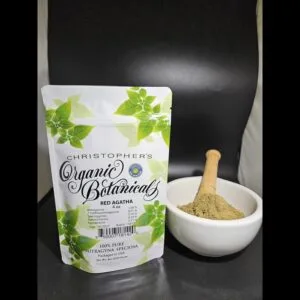
Red Agatha 15612 kratom powder presented with its branded bag, emphasizing premium quality and professional packaging.
The Process of Making Kratom Powder
Harvesting and Initial Processing
1. Harvesting: After harvesting, the Kratom leaves are separated from the leaf veins. The leaves are then placed in net bags and transported to a storage area. This transportation is carefully managed to avoid piling, which can cause damage and nutrient loss due to heat.
2. Cleaning: The leaves are placed in large containers filled with water to remove dirt and dust. Once cleaned, the leaves are stored on racks for further processing.
Quarantine and Sorting
3. Quarantine: The clean leaves are quarantined, where they are sorted to remove any defective or damaged leaves.
4. Draining: The sorted leaves are drained to remove excess water, facilitating an efficient drying process.
Drying
5. Air-Drying: The leaves are air-dried in a shaded room to prevent direct sunlight exposure, which helps maintain their quality. This process typically lasts for 3-5 days until the leaves are completely dry.
6. Final Sorting: Once dried, the leaves are sorted again to ensure only completely dry and clean leaves proceed to the next stage. They are inspected for color changes and dryness consistency.
Grinding
7. Powdering: The dried leaves are ground into a fine powder using a Nano or micro stainless steel grinding machine.
8. Final Sorting: After grinding, the Kratom powder is sorted to ensure it meets quality standards before packaging and distribution.
This meticulous process ensures that the Kratom powder produced is of the highest quality, maintaining its beneficial properties and ensuring consistency for consumers.
Benefits of Kratom Powder
1. Natural Composition: Kratom powder is less processed, preserving the natural profile of the plant.
2. Versatility: It offers multiple methods of consumption, including capsules.
3. Gradual Effects: Powder provides a more gradual onset of effects, which some users prefer for a smoother experience.
What is Kratom Extract?
Kratom extract is a concentrated form of Kratom. It is created by boiling Kratom leaves or powder to extract the alkaloids, resulting in a more potent product. Extracts are usually available in liquid or powder form and are often labeled with a ratio indicating their strength compared to regular Kratom powder, such as 2x, 5x, or 10x, but we don’t use that terminology, but instead refer to extract products as 45% or 80% mitragynine.
Extracts are good for an on the go option, but kratom powder should be for regular use.
Benefits of Kratom Extract
1. Potency: Extracts are significantly more potent than powder, requiring a smaller dose to achieve desired effects.
2. Consistency: They offer a more consistent experience as the concentration process reduces variability.
3. Convenience: Extracts are easier to consume, especially in liquid form, and are ideal for users looking for quick and potent effects.
Kratom Extract vs Kratom Powder
1. Potency and Dosage: Extracts are more potent, so users need to be cautious with dosing.
2. Cost: Extracts are generally more expensive due to the additional processing involved.
3. Effects: Extracts tend to have stronger and quicker effects, while powder provides a more gradual experience.
4. Suitability: Powder may be better for new users or those seeking milder effects, whereas extracts are suited for experienced users seeking stronger effects.
Extended Discussion on Kratom Powder
Kratom powder is often preferred for its flexibility in dosage and method of consumption. Users can easily adjust the amount they take based on their individual needs and preferences. Moreover, the powder form allows for a more traditional experience, similar to how Kratom has been used for centuries in its native regions. The powder can also be incorporated into food and drinks, making it an accessible option for those who may not enjoy the taste of Kratom on its own.
In-depth Analysis of Kratom Extracts
Kratom extracts, being more concentrated, are an excellent choice for people who require a more substantial effect from a smaller amount of the product. The extraction process isolates the active alkaloids, providing a more potent and fast-acting experience. However, due to their strength, extracts must be used with caution, and beginners are advised to start with lower concentrations to gauge their tolerance.
Comparison of Effects
The effects of Kratom, whether in powder or extract form, can vary depending on the strain and dosage. Generally, lower doses tend to produce more energizing effects, while higher doses are associated with relaxing effects. Kratom powder offers a balanced and nuanced experience, with the onset of effects being more gradual. On the other hand, extracts provide a more intense and immediate impact, which might be overwhelming for some users.
Safety and Responsible Use
Using Kratom, whether in powder or extract form, requires a responsible and cautious approach to maximize benefits while minimizing potential risks. It’s essential to begin with small doses, particularly if you are new to Kratom or trying a new strain or form. Starting low allows you to observe how your body reacts and adjust the amount accordingly. Gradually increasing the dose can help you find the right balance for your individual needs without overdoing it.
Equally important is the source of your Kratom. Not all Kratom is created equal, and the market varies significantly in terms of quality and purity. Purchasing Kratom from reputable vendors ensures you are getting a product that is authentic, safe, and effective. Look for vendors who provide transparent information about the origin of their Kratom, engage in ethical sourcing practices, and perform rigorous quality control tests. This ensures that the Kratom you use is free from contaminants and consistent in its alkaloid content.
Keep in mind that Kratom interacts with the body’s systems in complex ways and can vary in its effects from person to person. It’s also important to consider any potential interactions with other substances. If you are taking medications, have pre-existing health conditions, or are pregnant or breastfeeding, consulting with a healthcare professional before using Kratom is crucial. A healthcare provider can offer personalized advice and help you understand any risks or contraindications.
Remember that Kratom is a powerful substance, and its use should be approached with respect and mindfulness. Paying attention to your body’s signals and staying informed about Kratom can help ensure a safe and positive experience. As with any supplement or herbal product, moderation and educated use are key to reaping the benefits while safeguarding your health.
Why Use Kratom Powder Instead of Kratom Extracts?
Using whole-leaf kratom powder rather than kratom extracts is often preferred for several reasons:
1. Natural Balance of Alkaloids
- Whole Leaf: Contains a full spectrum of naturally occurring alkaloids that work together, providing a balanced experience.
- Extracts: Concentrate certain alkaloids, which may lead to more intense effects but can alter the natural composition.
2. Lower Risk of Tolerance Build-Up
- Whole Leaf: The alkaloids are present in their natural concentrations, making it easier to use consistently over time without needing higher amounts.
- Extracts: Their concentrated nature may lead to the need for more frequent adjustments in serving size.
3. Simplicity of Composition
- Whole Leaf: Typically contains just ground kratom leaves, keeping it free of added substances or alterations.
- Extracts: Often involve processing with solvents or additional ingredients that may change the product’s makeup.
4. Cost-Effectiveness
- Whole Leaf: Provides a practical, affordable option for regular use.
- Extracts: Usually cost more per serving, which can add up over time.
5. Traditional Use
- Whole Leaf: Used in its natural form for generations in Southeast Asia.
- Extracts: A modern innovation that doesn’t share the same historical roots.
Choosing whole-leaf kratom powder offers a simple, traditional, and versatile way to experience kratom.
Conclusion
Both Kratom powder and Kratom extracts have their unique benefits and applications. Your choice depends on your individual needs and preferences.
If you are new to Kratom, starting with the powder might be advisable to understand how your body reacts to it. For experienced users or those seeking more potent effects, extracts can be an alternative. Always remember to use Kratom responsibly, and consider consulting with a healthcare professional before starting any new regimen.

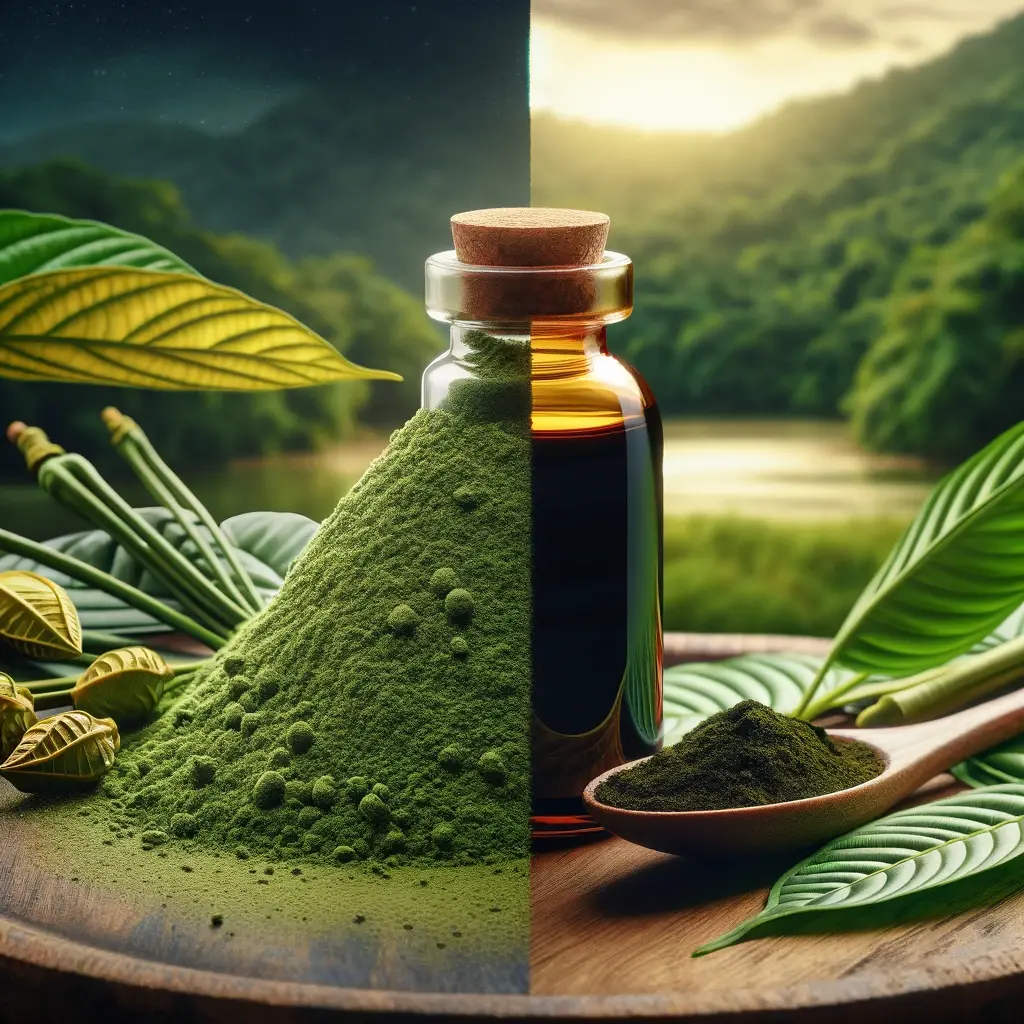
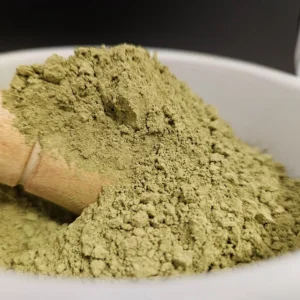
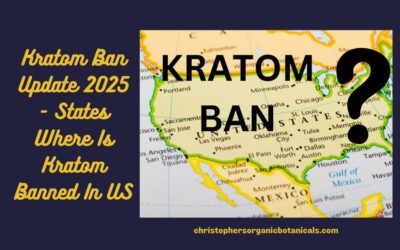

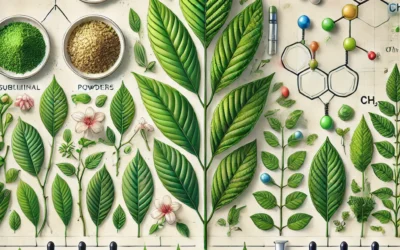

0 Comments